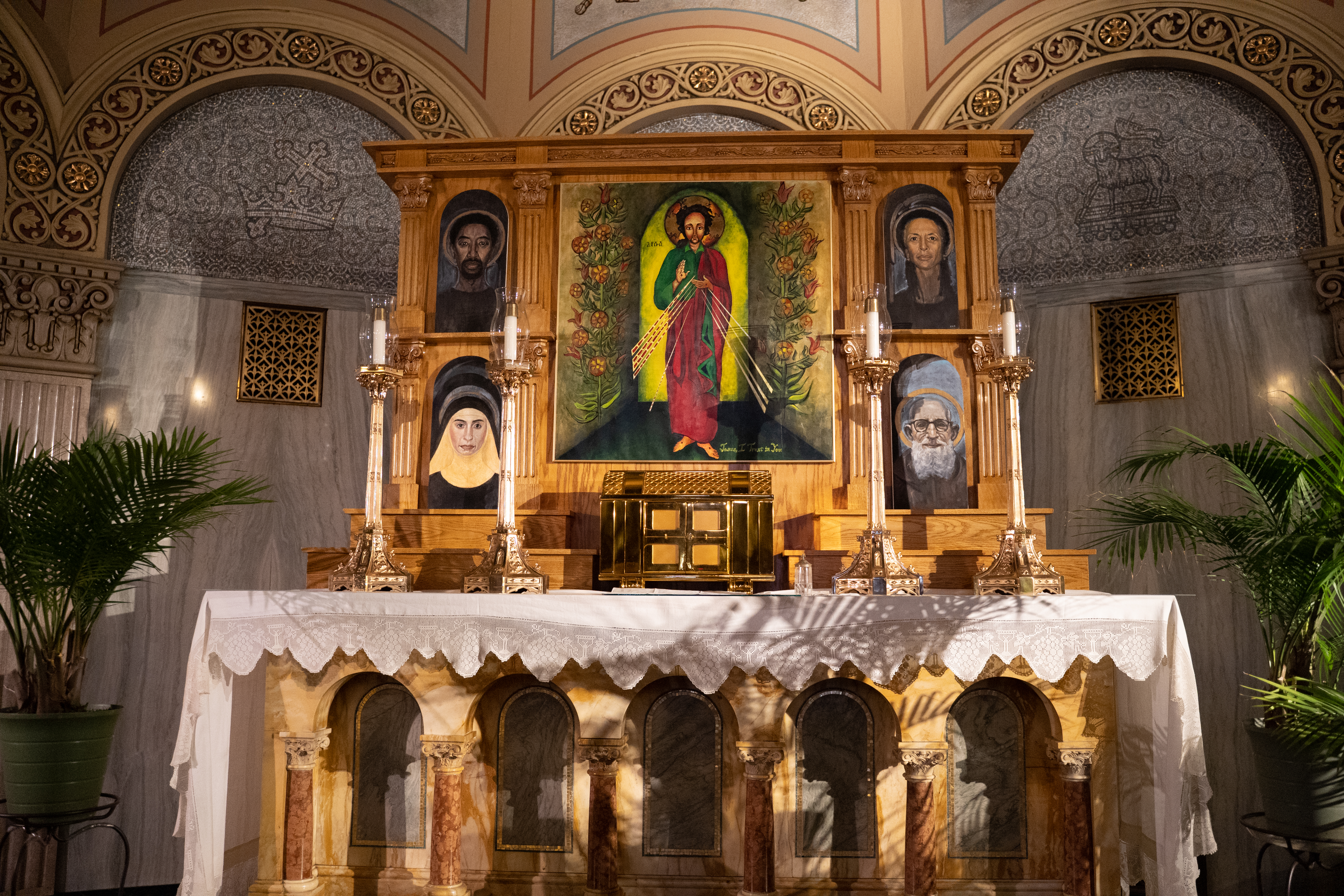Detroit-area artist creates images in the ancient style of Fayoum Portraits, popular during time of parish's patrons
DETROIT — Thanks to a Detroit-area artist, church-goers will see new faces in the sanctuary on Sundays at a historic city parish — the faces of St. Augustine, St. Monica, St. Catherine and Blessed Solanus Casey, that is.
In late November, St. Augustine and St. Monica Parish unveiled paintings of the four saints when the final painting of Blessed Solanus, a man close to Detroit’s own heart, was completed. They now rest on the altarpiece above the tabernacle.
Among the four are the parish’s patrons, St. Augustine and St. Monica, as well as the church’s original patron, St. Catherine. The church itself, built in 1919, was founded as St. Catherine of Siena Parish and operated under that name until a merger with nearby St. Edward Parish in 1970. The parish merged again in 1989 with St. Bernard Parish, taking the new name of St. Augustine and St. Monica.

Blessed Solanus Casey also resides on the altar for his notable contributions to the city, including the founding of the Capuchin Soup Kitchen only two miles from the parish.
All four paintings took a little more than a year from conception to the last installation. Parishioners donated for the paintings, which were completed by local artist and College of Creative Studies professor Gil Ashby.
Msgr. Daniel Trapp, pastor of St. Augustine and St. Monica, said it was his longtime dream to have artwork in the church that would reflect its history and parishioners, many of whom are African-American. Msgr. Trapp’s predecessor and the founding pastor of St. Augustine and St. Monica, Fr. Don Clark, worked to have art of Our Lord and the saints portrayed in the African style.
Ashby created the four paintings in the style of Fayoum Portraits, a type of painted portrait on wooden boards produced since before the time of St. Augustine and St. Monica in the fourth century, making the faces look traditional yet contemporary.


The once Brooklyn-based artist saw his role as a “divine opportunity.” And during what he described as the country's “divisive times,” Ashby was especially honored to bring representation into the church in a way that pays tribute to the church’s history.
“The significance is not lost on me,” Ashby told Detroit Catholic. “The art that I make is always personal, and the older I get, the longer I do it, the more of who I am is revealed.”
Msgr. Trapp noted that the goal of an altarpiece is to show “the members of the Body of Christ. The saints are there, the angels are there,” he said. The paintings serve as a reminder that the members of Christ’s body are always present in the Church, he said.









